1. They Live Longer Than You Think

Owning a pet snake isn’t a short-term commitment. According to PetMD, depending on the species, a snake can live anywhere from 10 to 30 years in captivity, meaning they’ll likely be with you for decades. While their long lifespan may seem like a plus, it’s essential to ask yourself if you’re ready for the long haul. Life changes, such as moving, career shifts, or family dynamics, could make caring for a snake challenging later on. If you’re not prepared to care for a pet that may outlive your car or your current apartment lease, this might not be the right choice.
Additionally, snakes don’t bond with their owners the way dogs or cats do, so you’ll be committing to a pet that doesn’t reciprocate affection. They’re fascinating creatures, but their companionship is purely observational. This can leave some people feeling unfulfilled in their pet ownership experience. Understanding their longevity and behavior is crucial before making this decision. Think carefully about how a decades-long commitment to a snake fits into your life plans.
2. Feeding Them Isn’t for the Faint of Heart

Snakes are carnivores, which means feeding them involves handling and offering prey animals like mice, rats, or even rabbits, depending on their size. For many people, the idea of storing frozen rodents in their freezer is a dealbreaker. While some snakes can eat pre-killed prey, others need live food, which can be stressful for both the owner and the prey. It’s not a glamorous task, and it’s something you’ll need to do regularly for years.
Beyond the logistics, the feeding process can be unpleasant to watch. Snakes are efficient predators, but witnessing them hunt, kill, and swallow their prey can be unsettling, especially if you’re squeamish. Feeding time is a stark reminder of their wild nature, which might not align with your vision of a low-maintenance pet. If you can’t handle the reality of their diet, it’s better to reconsider owning one.
3. They Require Specialized Housing
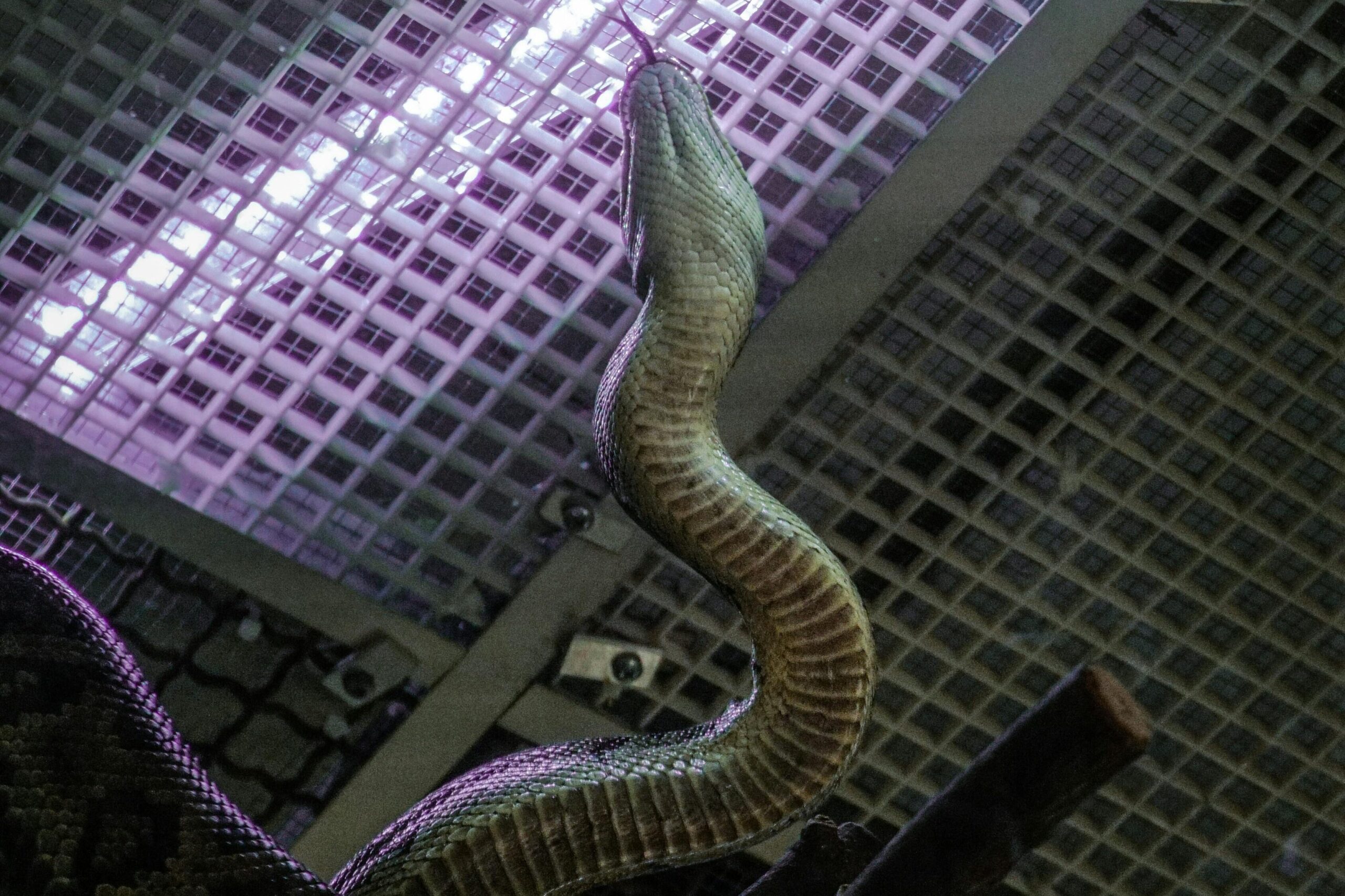
Snakes need more than just a glass tank and some bedding to thrive. Their habitats must mimic their natural environment, including the right temperature, humidity levels, and hiding spots. This often means investing in heat lamps, thermometers, humidity gauges, and specialized substrates. The initial setup can be expensive, and maintaining it requires ongoing attention and effort.
Improper housing can lead to stress and health issues, like respiratory infections or poor shedding. Snakes are escape artists, too, so you’ll need a secure enclosure to prevent them from wandering around your house. If the thought of creating and maintaining a climate-controlled environment feels overwhelming, owning a snake might not be for you.
4. They’re Escape Artists

Snakes are incredibly skilled at finding their way out of enclosures, no matter how secure you think they are. They can squeeze through the tiniest gaps, climb surprisingly well, and even push open lids that aren’t properly secured. If your snake escapes, it can lead to frantic searches around your home and, in some cases, cause panic among neighbors. An escaped snake can also pose a danger to itself, as it might get stuck in small spaces, encounter electrical wiring, or find its way into hazardous areas like kitchens where it could be injured. Ensuring your snake’s enclosure is escape-proof requires constant vigilance and regular checks.
The stress and worry of an escape can be overwhelming, as finding the snake before it gets hurt or damages property can take hours or even days. If the snake isn’t found in time, it can suffer from dehydration or malnutrition. Additionally, household pets or small children could unknowingly come into contact with the snake, leading to possible safety risks. If you aren’t prepared to commit to the level of responsibility and security required to prevent an escape, snake ownership might not be the best fit.
5. They’re Not Cuddly Companions
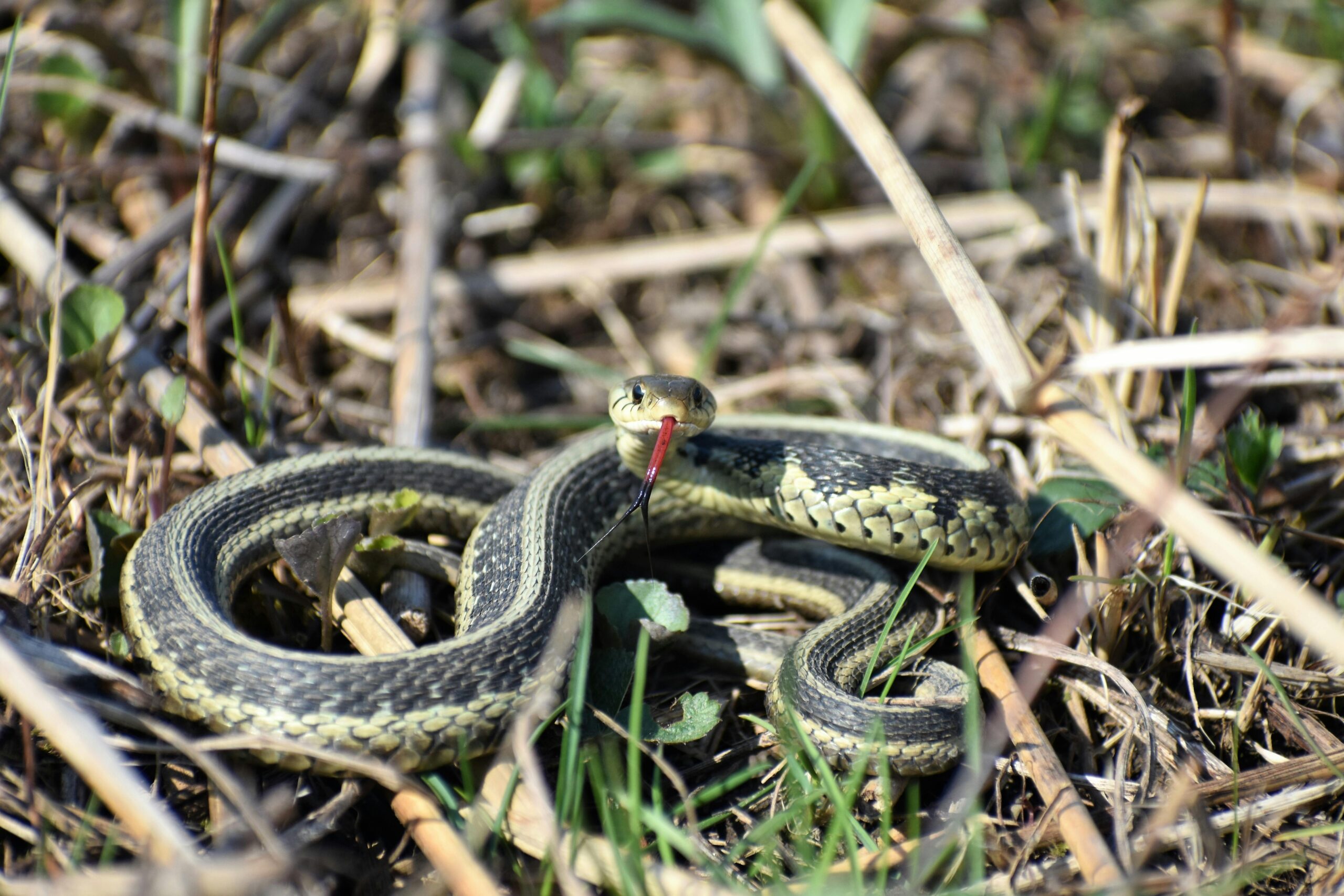
If you’re hoping for a pet that loves to snuggle or show affection, a snake likely won’t meet those expectations. Snakes are solitary creatures and don’t form emotional bonds with their owners. While they may tolerate occasional handling, they don’t seek out interaction and can become stressed if handled too frequently or incorrectly.
This lack of emotional reciprocity can make snake ownership feel less rewarding for some people. Unlike dogs that greet you with wagging tails or cats that curl up on your lap, snakes don’t express emotions or gratitude. While they can be fascinating to watch, they won’t provide the same emotional connection that many pet owners desire. If you’re looking for a pet that offers affection and companionship, a snake might not be the right choice.
6. Health Issues Can Be Expensive
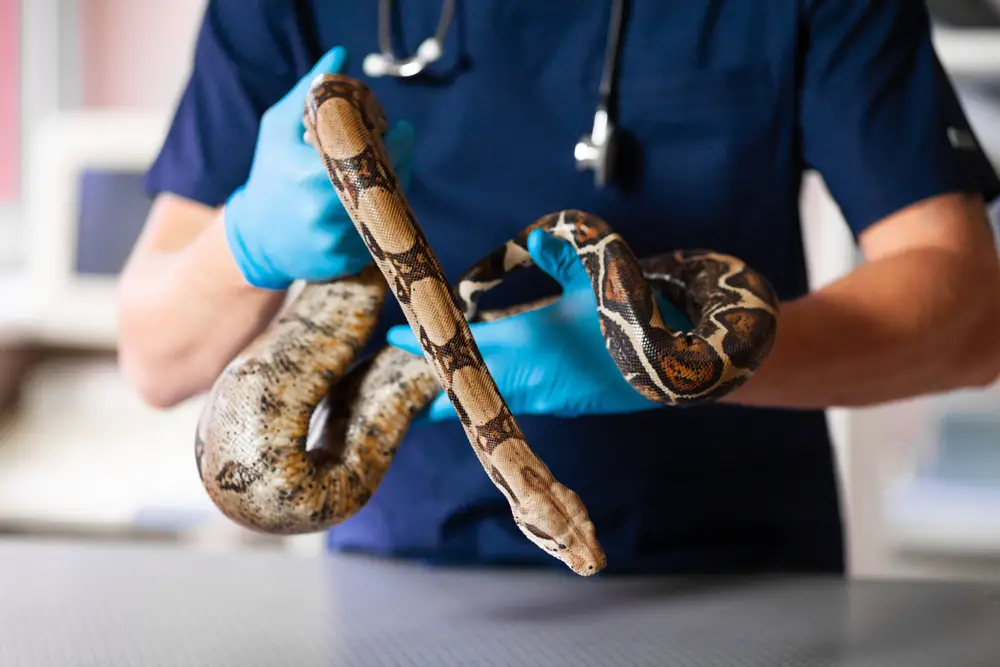
Veterinary care for reptiles is a specialized field as not every veterinarian is equipped or trained to handle the unique health needs of these creatures. When your snake becomes ill, finding a qualified exotic animal vet can be both time-consuming and expensive. Common health issues like mites, respiratory infections, or improper shedding require prompt treatment to avoid worsening conditions.
Preventative care is essential, and this includes regular checkups and maintaining a proper habitat. However, these steps also come with additional costs, from vet visits to specialized treatments or supplies. Unlike dogs or cats, you can’t simply walk into any local vet clinic and expect them to handle your snake’s needs. If you’re not prepared for the financial and logistical challenges of snake healthcare, it’s worth considering whether snake ownership is the right choice for you.
7. They Can Outgrow Your Space
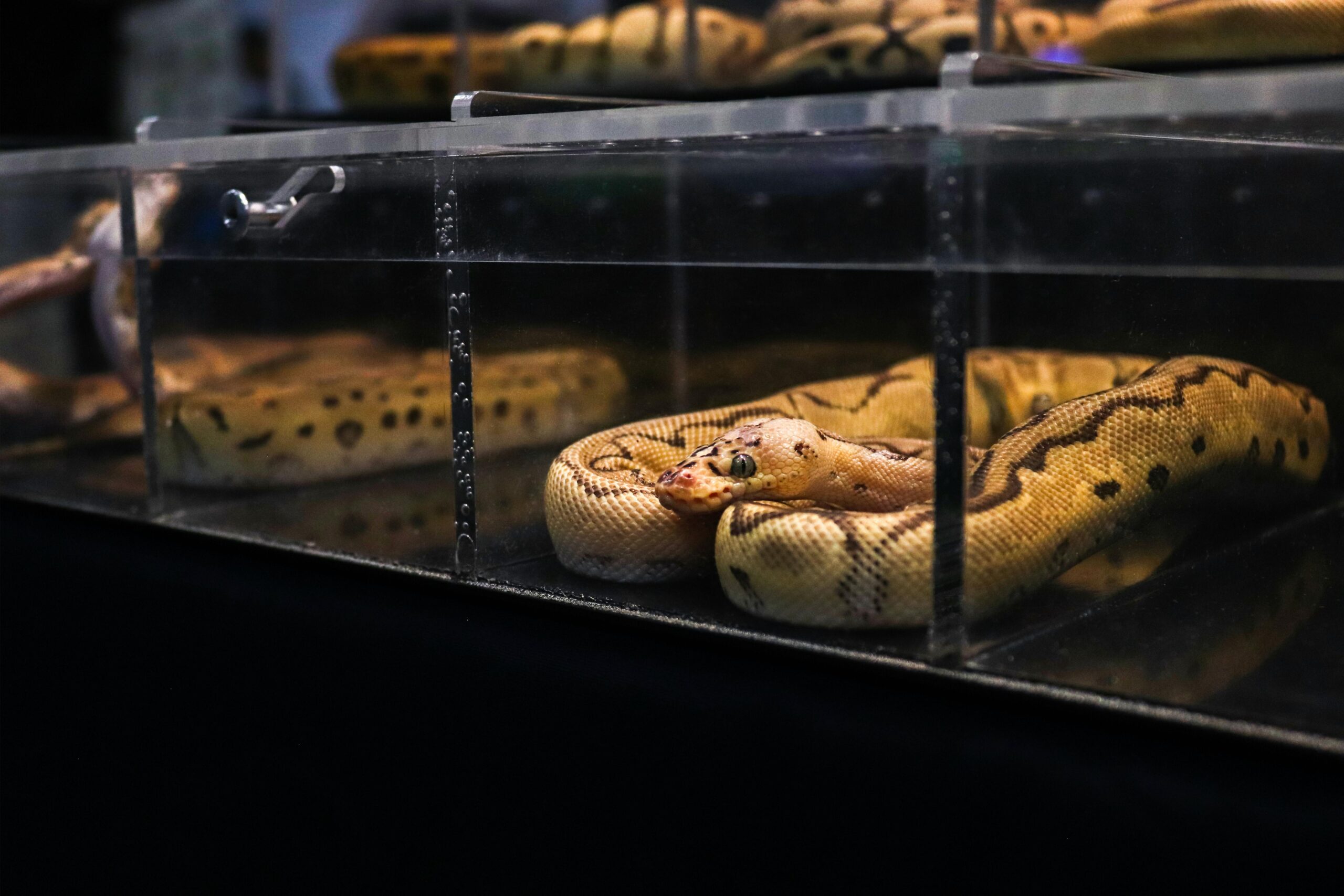
Some snake species, like pythons or boas, can grow to be over 10 feet long and weigh more than 50 pounds. Housing a large snake requires not just extra space but also a sturdy, secure enclosure that can handle its size. This may be difficult or even impossible in smaller apartments or homes with limited space. Even smaller snakes, like corn snakes, need a suitably sized tank and some enrichment items to stay mentally and physically healthy, which can take up more room than you might expect.
Before committing to snake ownership, it’s crucial to research how large your chosen species will grow. The cute, manageable baby snake you bring home could quickly turn into a huge, intimidating adult that requires a much more complex setup. This can be especially difficult if you live in a smaller home or have limited space for a large enclosure. If your living situation isn’t compatible with a potentially massive pet, it’s best to consider choosing a smaller, more manageable species or even reconsider owning a snake altogether. It’s important to think long-term and plan for the growth of your pet before making a decision.
8. They Don’t Show Love or Loyalty

Unlike dogs wagging their tails or cats curling up on your lap, snakes don’t display affection. They operate on instinct, and their reactions to you are more about familiarity and routine than emotional bonding. While you may provide them with food, shelter, and care, they don’t seek out your attention or show any signs of attachment in return. This can create a one-sided relationship, where you invest a lot of care and time, but you don’t get the rewarding companionship that other pets might offer.
Some people find joy in observing their snake’s unique behaviors, such as how they move or hunt. However, if you’re hoping for a more interactive experience, like a pet that will greet you at the door or snuggle with you, a snake isn’t going to provide that kind of connection. Snakes are more about fascination and observation than companionship, which can be a letdown for those looking for more engagement from their pets. It’s important to manage expectations and understand that a snake’s love for its owner is not the same as what you might experience with other pets.
9. They’re Not Good for Beginners
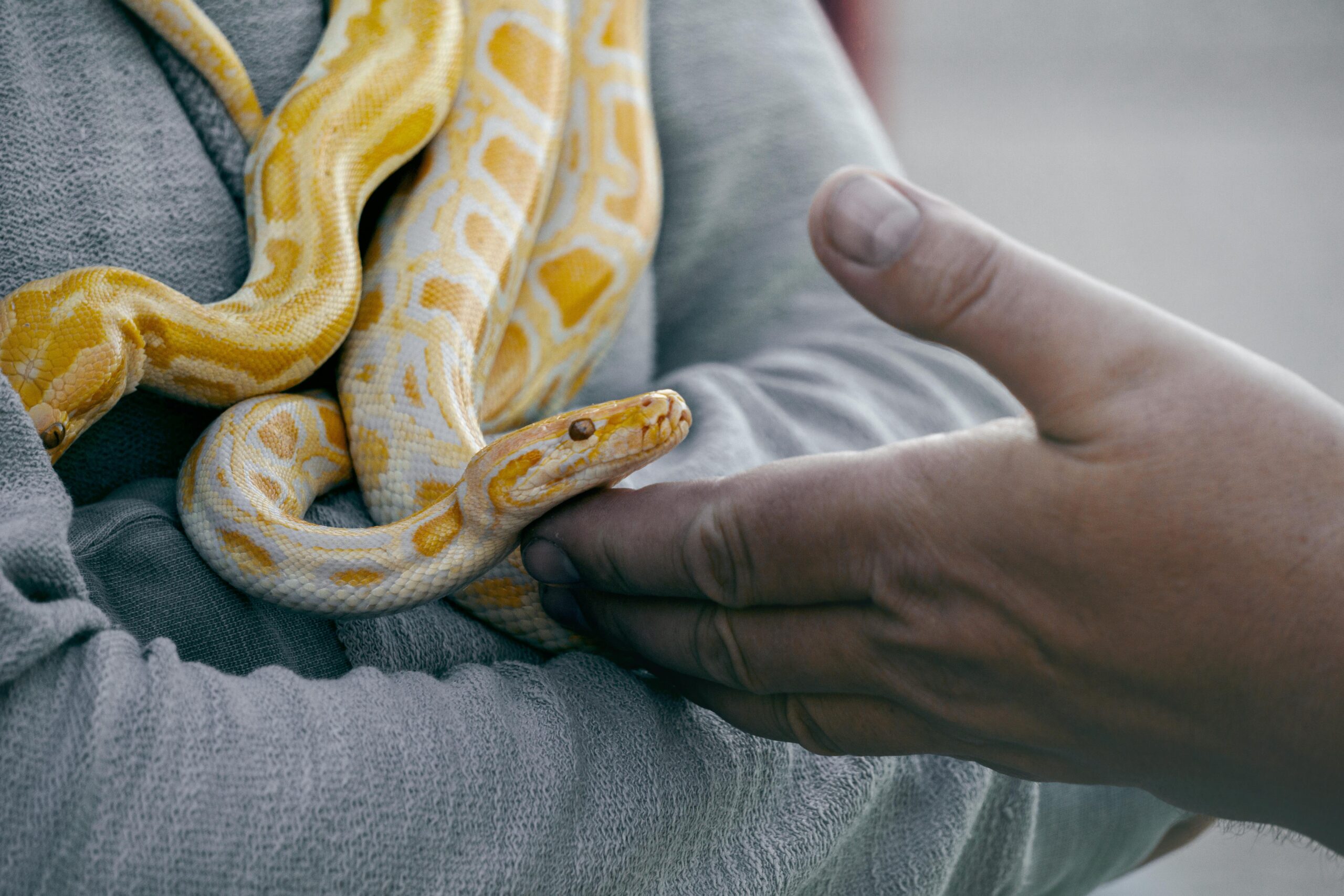
Many people assume snakes are easy to care for because they don’t need daily walks or playtime. However, their specialized needs make them better suited for experienced pet owners. Beginners often underestimate the time, effort, and knowledge required to maintain a snake’s health and habitat. It’s not just about feeding them occasionally or cleaning their enclosure once in a while—there’s a lot of responsibility involved that can catch first-time owners off guard.
From understanding their dietary needs to monitoring their environment, owning a snake involves more complexity than meets the eye. New owners must become familiar with specific temperature, humidity, and substrate requirements for different snake species. Without proper research and preparation, a beginner might inadvertently create an unsuitable living environment, which could lead to health problems for the snake. Caring for a snake requires constant learning and adaptability, which might be overwhelming for those without prior experience in reptile care.
10. They Can Make Visitors Uncomfortable

Not everyone is comfortable around snakes, and owning one can create unexpected social challenges. Some friends or family members may be hesitant—or outright refuse—to visit your home, even if your snake is securely contained. The mere presence of a snake can trigger anxiety or fear for certain individuals, regardless of how harmless or small your pet might be. This could limit your ability to host gatherings or make social interactions in your home more awkward than anticipated.
Additionally, your neighbors’ feelings about your pet should also be considered, especially if your snake were ever to escape its enclosure. Even the thought of a loose snake could spark panic, damaging relationships or creating neighborhood drama. Owning a snake often means sacrificing some social ease and accepting that not everyone will share your enthusiasm for your scaly companion. For those who value a harmonious social life, this is an important factor to weigh before committing to snake ownership.
11. They Can Trigger Fears or Phobias

For some people, snakes are the ultimate nightmare. Ophidiophobia, the fear of snakes, is one of the most common phobias, and owning a snake could unintentionally distress friends, family, or even yourself. If you have roommates or live in close quarters, their comfort level with snakes is something you’ll need to discuss in advance. A surprise encounter with your pet might not go over well, even if the snake is harmless.
Even casual visitors or service professionals entering your home could feel uneasy knowing a snake is nearby. This can lead to awkward conversations or even strained relationships. While it’s your right to choose a pet, owning a snake means considering how others around you might react. If you value harmony in your living environment, this is an important factor to weigh.
12. Their Enclosures Take Up More Time Than You Think
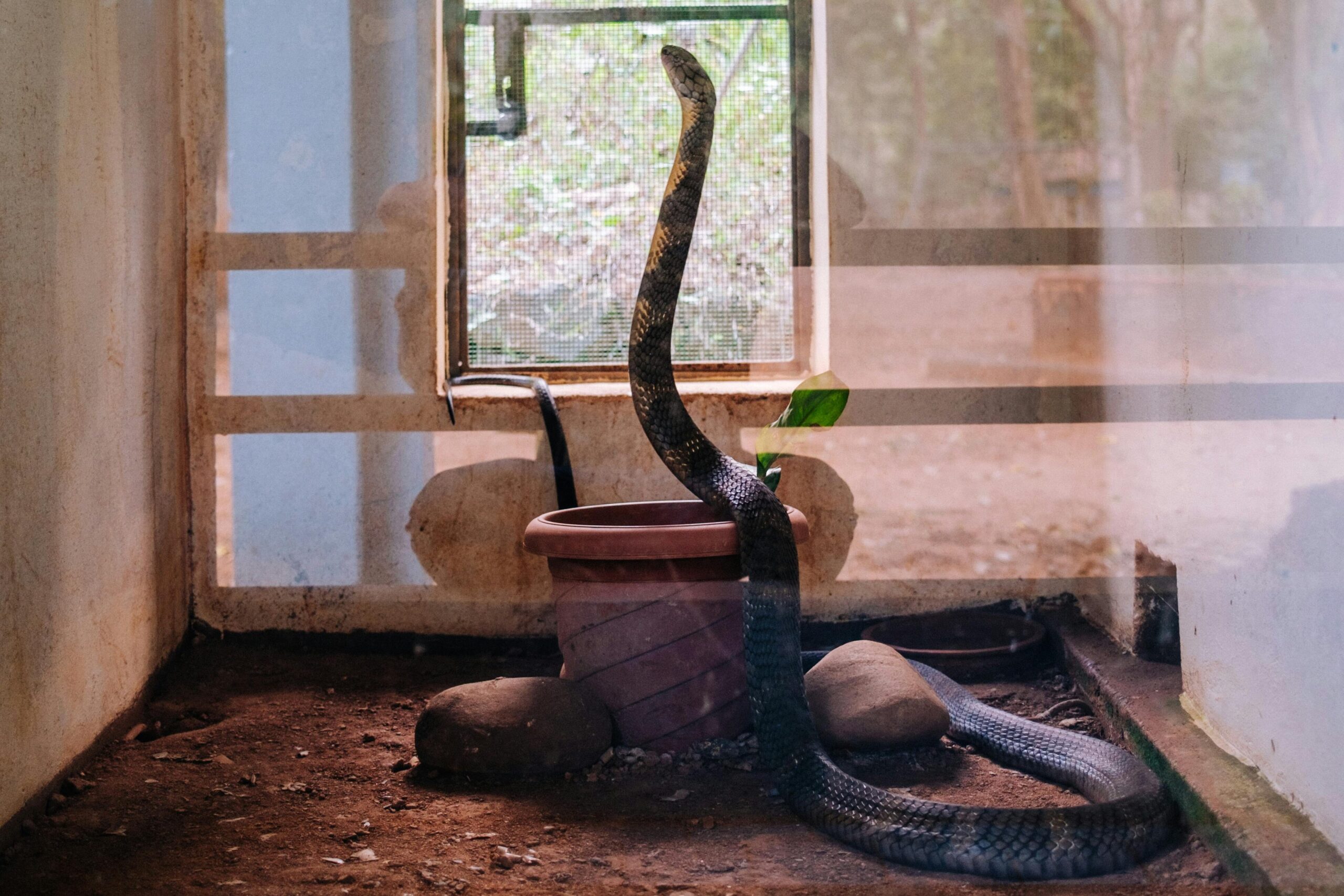
A snake’s enclosure isn’t a “set it and forget it” situation; it requires consistent attention and upkeep to ensure your pet’s health and safety. Regular cleaning is essential to prevent the buildup of bacteria, mold, and waste, which can cause illness or stress for your snake. Spot-cleaning for droppings, sanitizing water dishes, and replacing the substrate are just the beginning. Beyond cleanliness, you’ll also need to monitor and maintain appropriate heat and humidity levels daily, which often means making small adjustments as environmental conditions change.
This level of ongoing maintenance can quickly become overwhelming for first-time owners or those who underestimate the effort involved. Neglecting these tasks doesn’t just lead to unpleasant odors or an untidy enclosure—it can result in serious health problems, such as respiratory infections or skin issues. A clean, stable, and properly regulated environment isn’t optional; it’s a core requirement for keeping a snake healthy and happy. If the idea of this meticulous upkeep feels daunting, a snake might not be the right pet for your lifestyle.
13. They’re Not as Low Maintenance as You Think
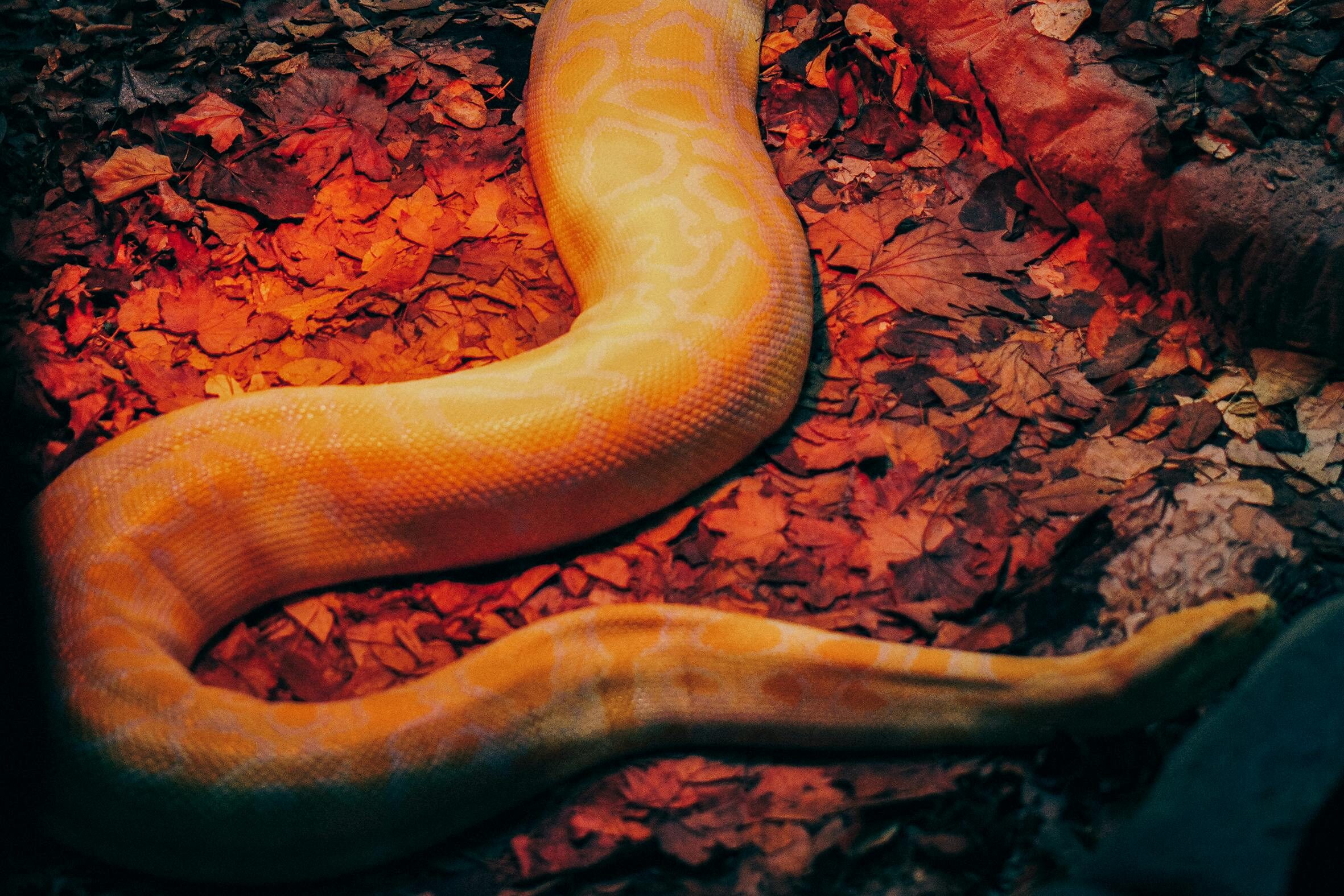
Many people assume snakes are an easy pet option because they don’t need walks or constant attention, but their care is far from hands-off. While snakes don’t crave daily interaction, maintaining their health and well-being requires a surprising amount of effort. Feeding schedules must be consistent, as irregular meals can lead to stress or health issues. Habitat upkeep, such as cleaning enclosures and replacing substrate, is crucial to prevent odors, mold, or parasites. Even small oversights, like a skipped feeding or a malfunctioning heat lamp, can result in serious consequences for your pet’s well-being.
Additionally, sourcing food and managing live or frozen prey isn’t as simple as grabbing a bag of kibble. Specialized equipment, such as thermostats, hygrometers, and heat sources, requires ongoing monitoring and maintenance. These items, along with vet care, contribute to a financial commitment that some owners might underestimate. The perception of snakes as “low-maintenance” pets can be misleading, especially for those unprepared for the level of attention they truly need. If your schedule is busy or unpredictable, the responsibility of caring for a snake might feel more burdensome than expected, making it worth reconsidering your choice.
14. You Can’t Just Leave Them Alone
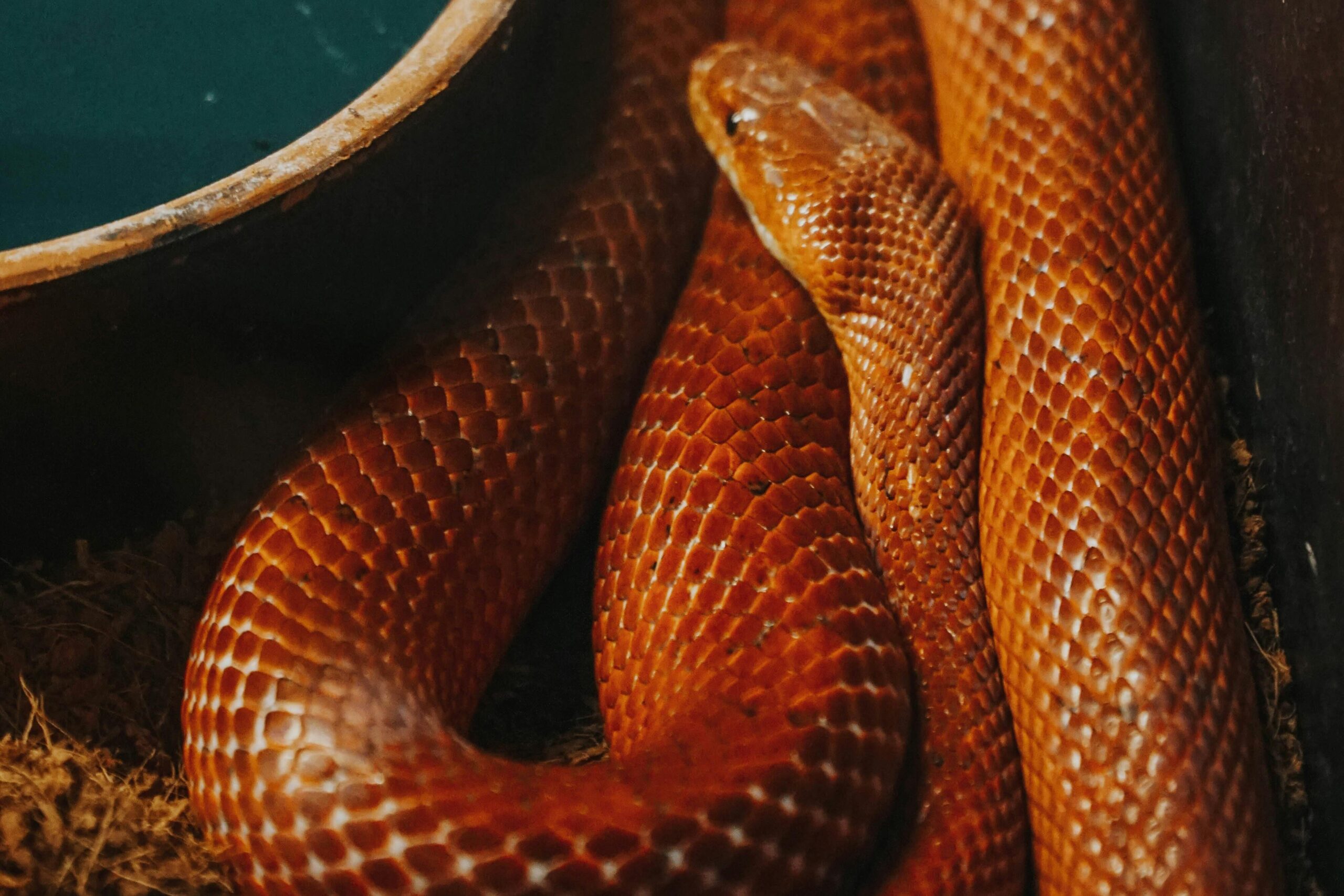
Snakes might seem like the perfect pet for frequent travelers or busy individuals, but they still require consistent care to thrive. Extended absences can disrupt their feeding schedules, leading to stress or health issues. Additionally, maintaining the right temperature and humidity in their habitat demands regular attention, as even minor fluctuations can affect their well-being. While snakes don’t need daily interaction like traditional pets, they do require periodic check-ins to ensure their environment is stable and they remain healthy. A neglected habitat or irregular feeding routine can quickly escalate into problems that might have been avoidable with consistent oversight.
Finding a reliable pet sitter for a snake can be surprisingly challenging, as not everyone is comfortable handling or caring for reptiles. Their specialized needs, such as feeding frozen-thawed prey or managing precise environmental conditions, may overwhelm even experienced pet sitters unfamiliar with reptiles. Furthermore, the general stigma or fear surrounding snakes can make it harder to find someone willing to look after them. If you travel often or have an unpredictable schedule, owning a snake might become a source of unnecessary stress rather than the low-maintenance companionship you were expecting. For those with busy lifestyles, ensuring the proper care of a pet snake may require more planning and resources than anticipated.
15. Rehoming Them Isn’t Always Easy
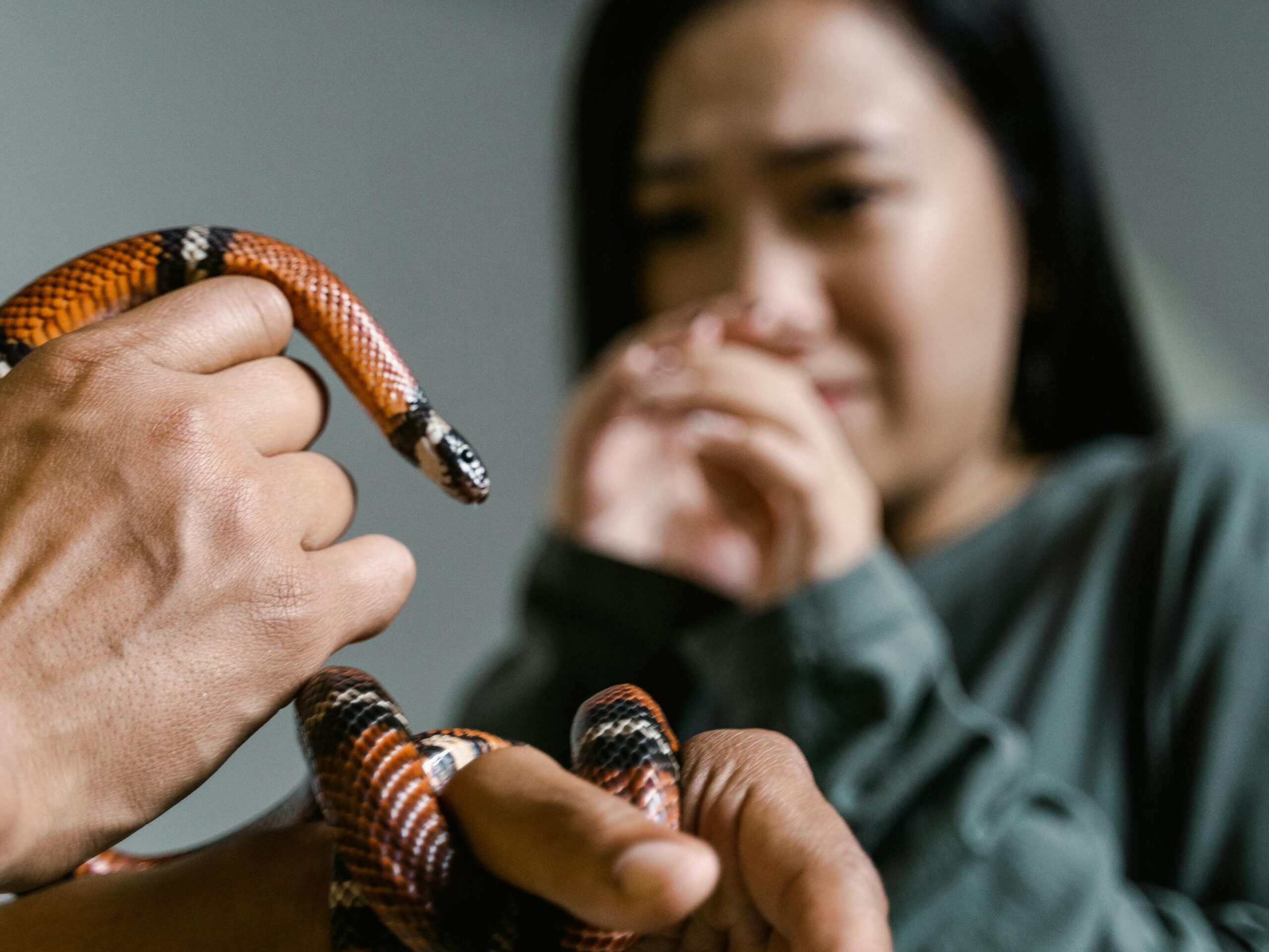
If you ever find yourself unable to care for your snake, rehoming it can be a complicated process. Not everyone is eager to adopt a pet reptile, and you may struggle to find someone with the experience and resources to care for them properly. Unlike cats or dogs, there aren’t as many rescue organizations dedicated to snakes, limiting your options.
Selling or giving away a snake also requires careful vetting to ensure the new owner will provide proper care. The last thing you want is for your pet to end up neglected or abandoned in the wild, where it could become invasive or die. Owning a snake means committing to its well-being for the long term or facing the difficulty of responsibly rehoming it. If that level of responsibility feels overwhelming, it might be best to reconsider owning one. By understanding the complexities of snake ownership, you can make an informed decision and ensure these fascinating creatures are only kept by those ready to meet their unique needs.


